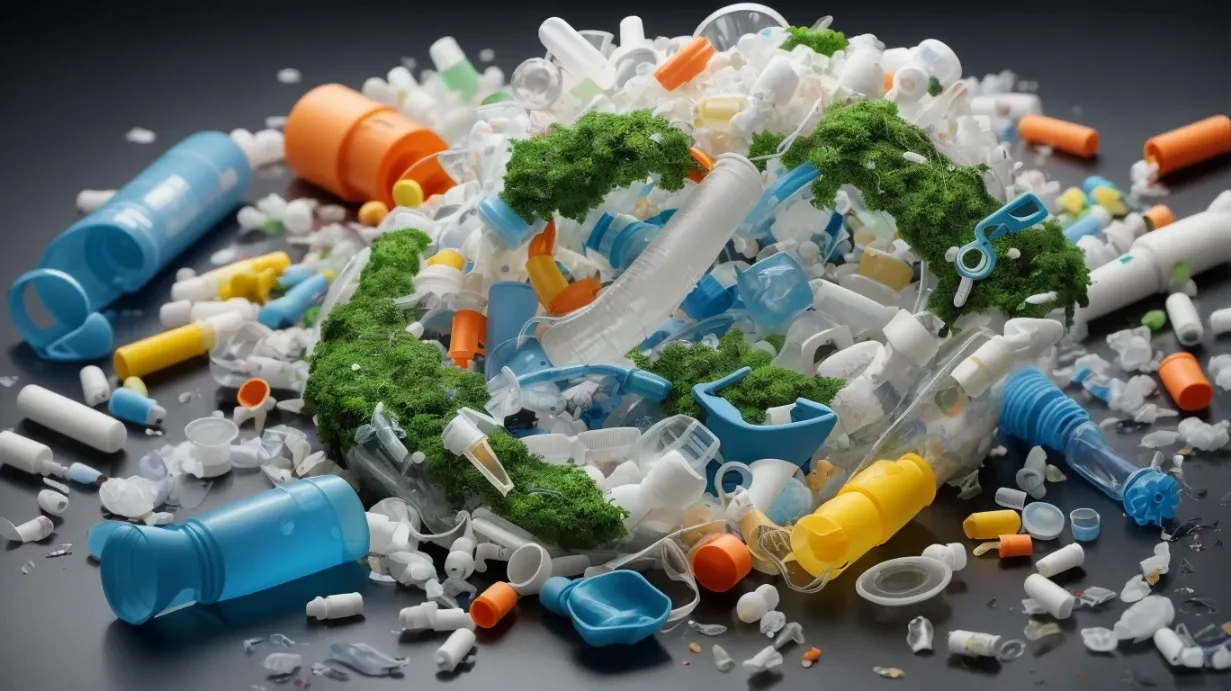In recent years, the escalating issue of plastic pollution has become the elephant in the room for environmentalists and scientists globally. Traditional methods of recycling? They've been found to be a drop in the ocean in tackling the enormity of the problem. However, every cloud has a silver lining, and in this case, it's biological recycling. This method, still in its infancy, is being explored and developed by numerous startups and research groups globally. But can this really be the solution we've been waiting for?
The Genesis of a Remarkable Discovery
In the picturesque northern coast of Spain, in Santander, Federica Bertocchini stumbled upon a phenomenon that would soon change the game in plastic recycling. While tending to her honeybees on an overcast spring morning in 2012, she noticed that one of the honeycombs was infested with worms, specifically the larvae of wax moths. These larvae, known for their insatiable appetite, were up to something fishy. Bertocchini decided to remove the worms and placed them in a plastic bag. A few hours later, she discovered that the bag was riddled with tiny holes. This observation set the ball rolling, leading her to conduct quick tests in her laboratory. The results were astonishing; the worms' saliva had the Midas touch, chemically degrading the plastic, thus marking the beginning of a groundbreaking research journey.
The Advent of Biological Recycling
Biological recycling, the new kid on the block, stands as a beacon of hope amidst the growing concerns surrounding plastic pollution. This method, which is still in its early stages, seeks to utilize bio-inspired means to recycle plastic, potentially offering a more effective and environmentally friendly alternative to the current problem-riddled recycling methods. The core of this effort lies in identifying organisms capable of breaking down plastic into its fundamental components. Scientists are actively exploring various sites, including landfills and auto-wrecking yards, which are teeming with plastic pollution, in the hopes of finding these organisms. The ultimate goal is to enhance the polymer-munching abilities of these microbes in the laboratory, facilitating an efficient way to reclaim the building blocks of plastics. But is this the panacea for our ever-growing plastics problem?
The Global Plastic Crisis
Since the 1940s, the production of plastics has skyrocketed, with current estimates suggesting an annual production close to 507 million tons. Regrettably, a significant portion of this plastic ends up either burned, buried in landfills, or discarded in the environment, leading to pervasive pollution that has penetrated every nook and cranny of our planet. This includes the deep oceans, both poles, and even our bodies. The rampant use and disposal of plastics have cast a long shadow over our environment and health. Despite these alarming facts, the demand for plastics continues to soar. But can we turn the tide before it's too late?
The Scientific Endeavors in Enzymatic Recycling
At the heart of biological recycling lies the utilization of enzymes, the unsung heroes of biochemistry, to dismantle plastic polymers into their basic components. These monomers hold the potential to be repurposed for the creation of new plastics, thus establishing a sustainable recycling loop. This approach could potentially transform used plastics into a goldmine, mitigating the current waste issues. The research in this field dates back to the 1970s but gained significant momentum in 2016 with the discovery of a new strain of plastic-eating bacteria by a team of Japanese scientists. This marked the beginning of a renewed global effort to identify and enhance enzymes capable of degrading plastics efficiently.
FAQs
Q: What is biological recycling?
A: Biological recycling is a cutting-edge approach where enzymes and microbes are employed to break down plastic waste into its basic components. These components can then be reused to manufacture new plastics, fostering a sustainable recycling loop.
Q: How did the concept of biological recycling come to light?
A: The inception of biological recycling can be traced back to several serendipitous discoveries, including Federica Bertocchini's observation of wax moth larvae's ability to degrade plastic. This spurred extensive research into organisms capable of naturally breaking down plastics, paving the way for the development of biological recycling methods.
Q: Are all types of plastics amenable to enzymatic recycling?
A: Currently, not all plastics are suitable for enzymatic recycling. The process is more effective on plastics with mixed-carbon backbones, as the available enzymes can efficiently break down the chemical bonds in these plastics. However, research is ongoing to find solutions for recycling other types of plastics using biological means.




